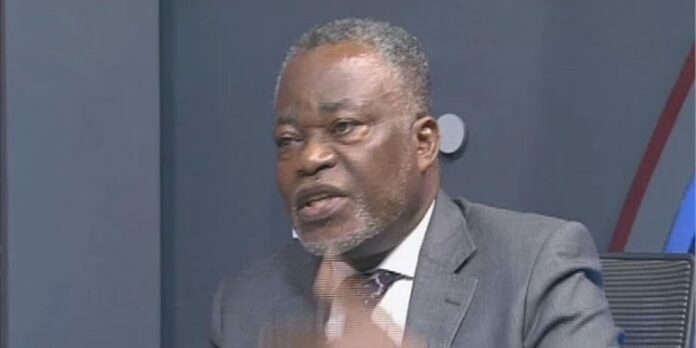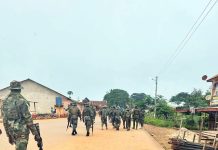The Chiefs of Defence Staff of the Economic Community of West African States (ECOWAS) assemble in Accra today, and tomorrow is primarily to plan military action against the Sahelian state of Niger. This intended action against one of the impoverished nations on planet earth is, however, being condemned by civil society groups.
The Chronicle has spoken to a number of people, including Colonel Festus Aboagye (rtd), one-time Task Force Commander during the civil war in Liberia, consultant for the African Union (AU) and the United Nations (UN) on conflicts. He wants the Defence Chiefs to be candid about the risks involved in the military intervention, as they embark on the planning.
The defense budget, he said, must be realistic, taking into consideration the fact that the economies in the regional block are not in good shapes. The former military officer continued that, they needed to factor in all the various angles, not abandoning mediation as one of the tools.
Dr. Adam Bona, Security Analyst, cautioned against attempting anything war, but rather resort to the use of diplomacy. According to him, the West African sub-region was already in turmoil, and a spillover from their activities would have dire consequences on a stable country like Ghana.
“Their inputs as a group must not result in any soldier being returned in body bags.
They must have it in mind that the citizens of ECOWAS are largely not in support of any upheavals in Niger,” he said, and added that nowhere in this world had force been used to achieve a meaningful result.
Mr. Bright Appiah, Child Rights Advocate, reiterated their stance against coups or military interventions, since both never benefited the aged, women or children. Ghana, he says, was already battling the menace of street children begging for alms who migrated from other jurisdictions in the sub-region, and cannot cope with additional costs emerging out of any hostilities against Niger.
He cited the already health related issues that affect children in Mali, Burkina Faso and even Niger, and that whatever goes into the planning must be designed towards diplomacy.
Mr. Rayborn Bulley, Journalist and a victim of the Liberian civil war, was emphatic about the old adage that when two elephants fight, it is the grass that suffers.
According to the veteran Journalist, during the Rice Riot in that country in 1980, it was the civilian population that was at the receiving end, and when the dust settled, the unarmed citizenry suffered the maiming and amputations.
Using military might to compel the new Nigerien government to hand over power to the deposed President would not only cause havoc to the citizens, but also the repercussions on other West African nationals in that country.
In Liberia it was a pure civil war from the onset, but just as the regional block, ECOWAS, announced the intention to intervene militarily with the Economic Community of West African States Monitoring Group (ECOMOG), led by Nigeria and Ghana, the warring factions commenced slaughtering nationals of these countries, he cautioned.










